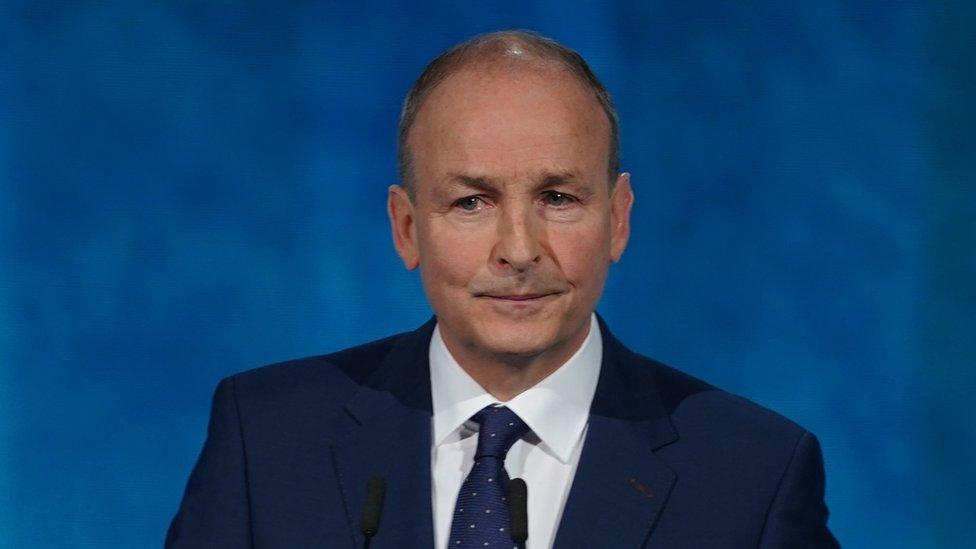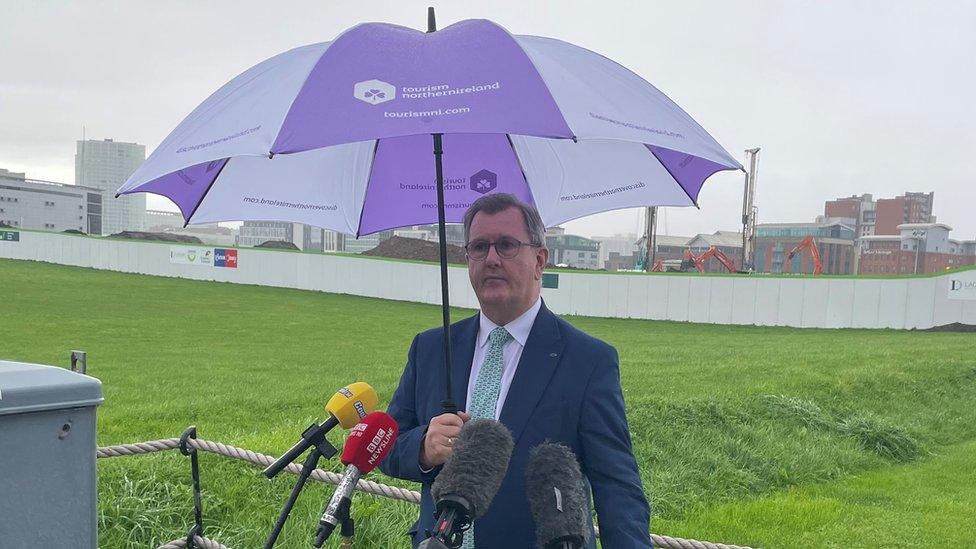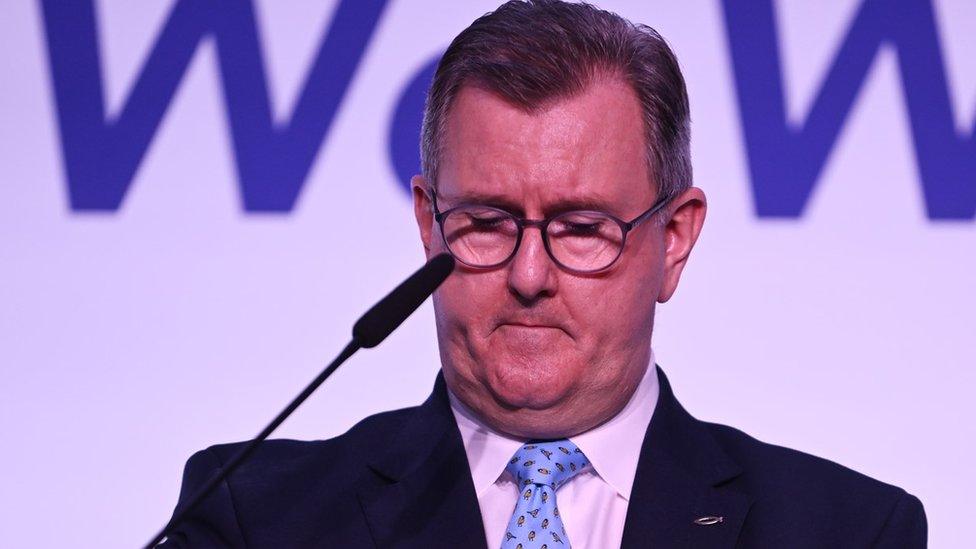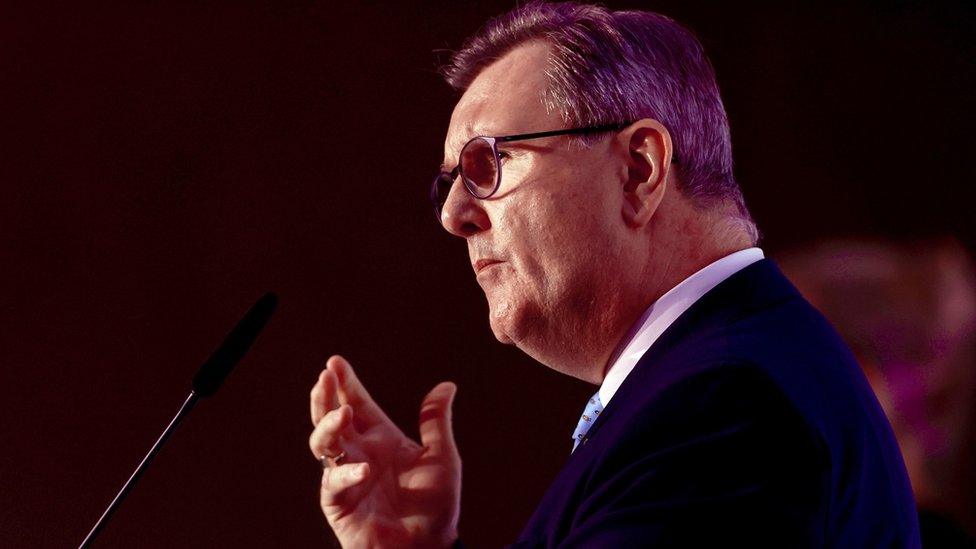Stormont stalemate: Irish deputy PM says talks progress has 'ebbed'
- Published

Fianna Fáil leader Micheál Martin is the tánaiste (Irish deputy prime minister) and minister for foreign affairs
The progress of talks to restore devolution in Northern Ireland "seems to have ebbed," Tánaiste (Irish Deputy PM) Micheál Martin has said.
He said it was his understanding that talks between the UK government and the Democratic Unionist Party (DUP) had "more or less come to a conclusion".
But the Northern Ireland Office (NIO) insisted talks were still ongoing.
The DUP is refusing to participate in devolved government at Stormont in protest over post-Brexit trade rules.
Northern Ireland's biggest unionist party pulled its first minister out of office in February 2022, saying the trade deal was damaging businesses and undermining the union.
Since then, Sinn Féin has overtaken the DUP as the largest party at Stormont after winning the most seats in the 2022 assembly elections.
However, because power-sharing requires the participation of both the main nationalist and main unionist parties, Stormont departments have been left without devolved ministers.
The Northern Ireland Civil Service has been running public services in the absence of elected representatives but there are widespread budget problems in many departments, especially health.
Speaking to Irish broadcaster RTÉ,, external Mr Martin said the Irish government would be seeking clarity from the UK government on how Northern Ireland would be governed if there was no return of devolution.
"We were hopeful some weeks back that there was progress being made. But, again, that seems to have ebbed," the tánaiste said.
"The people of Northern Ireland they have huge health issues, in terms of health services, education and so on, and the centre cannot hold there in respect of the fiscal situation, the budgetary situation, if the executive doesn't come back," Mr Martin added.
"And obviously we will be discussing this with the British government in terms of next steps, if the executive is not coming back or if the assembly is not coming back, we need clarity on that."
On Sunday, a spokesperson for the NIO told BBC News NI that talks were still ongoing and a running commentary was not being provided.

DUP leader Sir Jeffrey Donaldson said last week that "significant gaps" remain in his party's talks with the UK government
Earlier in 2023, Prime Minister Rishi Sunak struck a new UK-EU deal with European Commission President Ursula von der Leyen in relationship to Northern Ireland.
Called the Windsor Framework, it was designed to ease some of the frictions on trade created by the original post-Brexit deal known as the Northern Ireland Protocol.
Both the protocol and the framework have the same basis - they both keep Northern Ireland inside the EU's single market for goods in order that trade can flow unimpeded between Northern Ireland and the Republic of Ireland.
However goods coming from Great Britain into Northern Ireland face a range of controls and checks.
The aim of the framework is to reduce the level of controls on goods coming from Great Britain which are intended to be sold in Northern Ireland.
The DUP said the framework did not address all its concerns about post-Brexit trade barriers between Northern Ireland and the rest of the UK.
At his annual party conference last month, DUP leader Sir Jeffrey Donaldson said a return to power-sharing government was "essential" for securing the future of the union.
He later said there were still "significant gaps" that have to be resolved before a proposal can be presented to his party.
- Published2 November 2023

- Published14 October 2023

- Published2 February 2024
